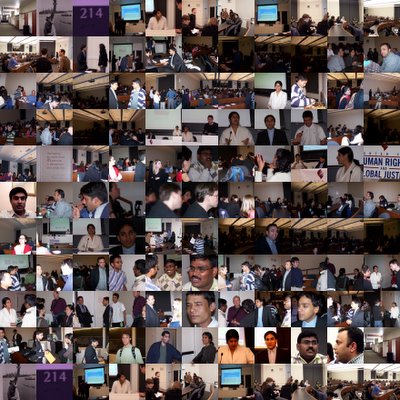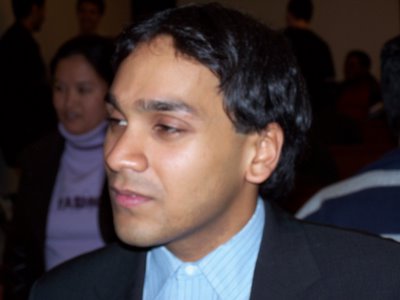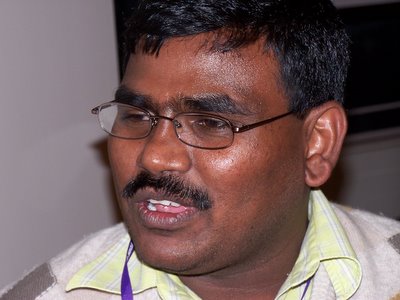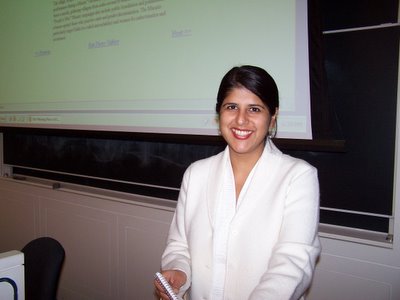 Three Scenarios
Three Scenarios - Scenario 1. Seven party coalition sticks to its four point program to which the House revival idea is key. House does not get revived either by the Supreme Court or the king, because neither have the option to do it. People refuse to come out into the streets in large numbers.
- Worst case scenario: Maoists end their ceasefire a week before December 3 so as to add an element of surprise to it, and launch a vicious attack against a RNA installatin they deem the weakest. The RNA is at the ready. There is a fierce battle. Neither side wins. A new round of civil war has been launched. It lasts to the middle of 2007. The Maoists carry out massive murder campaigns of candidates to disrupt the municipal and the national polls and succeed. The king digs heels claiming the Maoists can not be allowed to win. The parties end up more marginalized than ever before. Nepal ends up a failed state some time in 2007. Nepal becomes Rwanda, Cambodia.
- Best case scenario: The parties request an extension of the ceasefire promising to launch a decisive movement. The Maoists comply. But people still refuse to show up in the streets. There is fear, there is apathy. But most of all there is frustration that the parties will not get rid of the House revival idea. Polls are held. There is a low voter turnout. And a few candidates lose life. But the king claims victory and says he is now on to the national polls. The parties look weakened. The Maoists break their ceasefire in March 2006.
- Scenario 2. Seven party coalition breaks. The Nepali Congress is kicked out of the coalition. The six party coalition revises its agenda and adopts a 3 point program, the 4 point program minus the idiotic House revival idea. The Congress leadership is isolated. The movement takes off. Congress cadres participate in large numbers.
- Worst case scenario: Looks like there is no unity amond the democrats. Girija makes detrimental statements. The king refuses to budge. The movement has to be toned up. From 100,000 people in the streets, it is 500,000 people in the streets. The parties have to unilaterally declare an interim government. It is two more weeks after that before the major world powers recognize that government. The ambassadors get kicked out. The bureaucracy comes along. The police come along. There is a threat of a coup from the army, but it does not get carried out. The army reluctantly comes along. Maoists try to fish in the murky waters. They switch back from the goal of a democratic republic to a communist republic. Peace talks are stalled. But then UN mediation is sought. The Maoists reluctantly come along. The king makes an attempt at another coup. The country heads straight for a democratic republic.
- Best case scenario: Hundreds of thousands of people come out into the streets. The king strikes a deal and an all party government is formed. Peace talks are held with the Maoists. The country heads into a constituent assembly.
- Scenario 3. The seven party coalition immediately adops the 3 point program. People come out into the streets in large numbers. Before December 3, the country has an all party government. The Maoists get invited to unconditional peace talks. Talks succeed. The country heads towards a constituent assembly.
- Worst case scenario: The king refuses to budge. The coalition unilaterally declares a government.
- Best case scenario: The country has a new progressive constitution before the Dashain of 2006. That ends up being the happiest festival season in a decade. Diwali was never brighter.
Around The World In 21 Days
The king flies to Bangladesh, then he is off to Africa, then he is off to the Middle East. The cost for the plane: $11,000 per flight hour. From Bangladesh, he is off to Tunisia. Then Burundi, Nigeria, Egypt. Then Saudi Arabia, then United Arab Emirates. The Royal Nepal Airlines has two planes. The carrier will have only one for itself in the mean time.
The Supreme Court Is Under Duress
Its verdict on the draconian media ordinance shows the Supreme Court of Nepal is no longer a party to the universal declaration of human rights, to the basic premises of the 1990 constitution. Chances are it is being both bullied and bribed by the mafia in power. This Supreme Court no longer believes in the rule of law. This has become a kangaroo court.
That is recipe for a revolution, not a movement.
NGOs burn copies of code of conduct across the nation, five arrested NepalNews
SC refuses to issue interim order on Media Ordinance
Maoists warn pro democracy activists
Parties working to expand democratic center: Leaders
The phase of reconciliation is over: Acharya
Government takes action against teachers
Nepal reporters lose court fight BBC News, UK
Royal Nepal Airlines to face cancellations for King's trip Asian Tribune, Thailand
King Gyanendra ready for reconciliation with parties
UN Concerned Over Code for NGOs
Nepal court refuses to block media law Khaleej Times, United Arab Emirates
MEDIA-NEPAL: Court Refuses to Restrain King's Gov't Inter Press Service (subscription), World
Royal Nepal Airlines has just two Boeing jets, monarch's foreign ... OhmyNews International, South Korea
Nepal Government introduces draconian code of conduct for I/NGOs Asian Tribune, Thailand
Thinking the unthinkable Nepali Times, Nepal
King Gyanendra now Dr Gyanendra, courtesy Russia NewKerala.com, India




